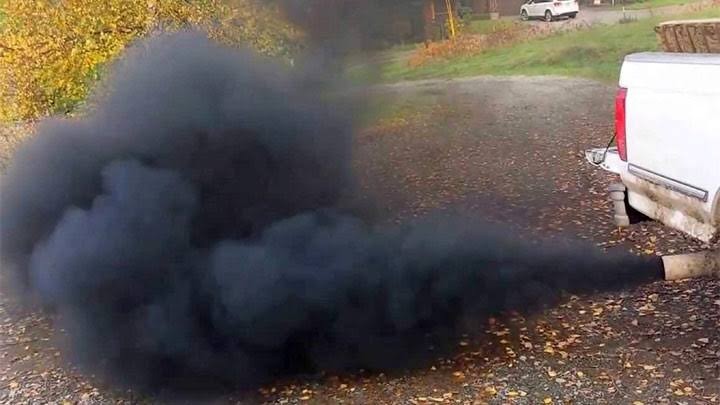Black smoke from the exhaust of a vehicle is often an indication of an issue with the fuel-to-air ratio or combustion process.
Possible causes of black smoke include:
- Rich fuel mixture: Too much fuel in the air-fuel mixture can result in incomplete combustion, leading to the production of black smoke.
- Clogged air filter: A dirty or clogged air filter restricts airflow, causing an imbalance in the fuel-to-air ratio and potentially resulting in black smoke.
- Faulty fuel injectors: Malfunctioning fuel injectors can deliver an excessive amount of fuel into the combustion chamber, leading to black smoke.
- Fuel pressure regulator issues: A faulty fuel pressure regulator can cause an excessively high fuel pressure, resulting in a rich fuel mixture and black smoke.
- Engine timing problems: Incorrect ignition timing can disrupt the combustion process and lead to the production of black smoke.
- Exhaust system restrictions: Blockages in the exhaust system, such as a clogged catalytic converter, can cause black smoke due to poor exhaust gas flow.
The Evolution of Exhaust Gas Recirculation (EGR): Reducing Emissions, Enhancing Efficiency
Diagnosing and troubleshooting black smoke:
- Check the air filter: Inspect and replace a dirty or clogged air filter to ensure proper airflow.
- Scan for error codes: Use a diagnostic scanner to retrieve any error codes related to fuel system components, such as fuel injectors or the fuel pressure regulator.
- Inspect the fuel injectors: Check the fuel injectors for clogging or leakage and clean or replace them as necessary.
- Verify fuel pressure: Use a fuel pressure gauge to measure the fuel pressure and ensure it falls within the manufacturer's specifications.
- Check the ignition timing: Verify the ignition timing and adjust if necessary to ensure proper combustion.
- Inspect the exhaust system: Examine the exhaust system for any restrictions or blockages and address them accordingly.
The Importance of Timing Belt Replacement: Preventing Engine Damage and Costly Repairs

Comments (0)
Please login to join the discussion
Be the first to comment on this article!
Share your thoughts and start the discussion